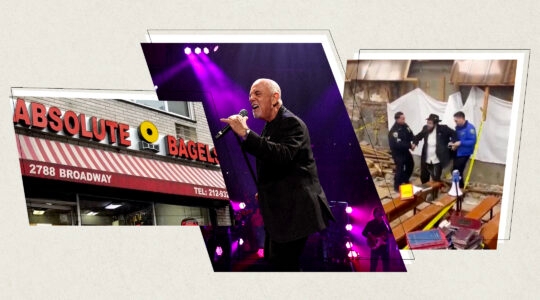When the New York Post first wrote about the fight over a bike lane through the Hasidic stronghold of Williamsburg, Brooklyn back in 2008, it portrayed the debate as one over community mores: the conservative, black-clad Hasidim upset over the skimpy clothing of the hipster bikers that would be the lane’s primary users. The evidence was a quote from Community Board Member Simon Weisser, who told the Post "it’s a major issue, women passing through here in that dress code."
It was an understandable way to frame the issue: both easy to understand and compelling, a fight not over the abstractions and statistical minutiae of big-city transportation policy, but over religious piety and hotties in short skirts. And, well, it was the Post. The headline? "Hasidic Lust Cause."
But according to Isaac Abraham, it’s also wrong. Abraham, an aspiring politician with ambitions to be the first Hasid elected to the New York City Council, insisted Monday at a panel discussion that the issue was one of safety, specifically for the thousands of Hasidic children in the neighborhood endangered by throngs of speeding cyclists who pass through, often heedless of traffic laws. Pushed repeatedly to address the charge that the issue was really cultural, Abraham demurred, avoided, and changed the subject, before finally addressing it head on. "No," he said, "it’s not cultural."
True or not, it was a savvy move. Safety is a language the bikers understand. Indeed, their primary claim on establishing a bike lane on Bedford Avenue in Willimasburg — the neighborhood’s primary thoroughfare and, at 10.2 miles, the borough’s longest avenue — is that it makes the streets safer for all concerned. If the issue is Hasidim insisting that their purity demands never having to look at a biker in a short skirt, or that cycling is somehow inherently unbecoming a devout Jew, the Hasidim aren’t going to win many sympathizers. Nor is that a particularly defensible position on the merits. In Antwerp, one of the largest Hasidic strongholds in the world outside Brooklyn and Israel, it’s common to see Hasidic men, women and children cycling along the city’s narrow lanes without any apparent effect on their piety.
In any case, the issue continues to command media and community attention. The back room at Pete’s Candy Store in Brooklyn was packed to capacity. Some of the coverage is available here and here. Video is below.
JTA has documented Jewish history in real-time for over a century. Keep our journalism strong by joining us in supporting independent, award-winning reporting.





